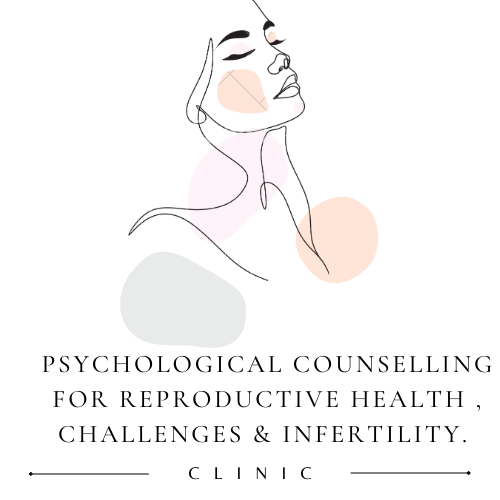
PCOS/PCOD
Polycystic Ovary Syndrome (PCOS) is a common hormonal disorder that affects individuals assigned female at birth. It can present a myriad of challenges, ranging from irregular periods and hormonal imbalances to fertility issues and metabolic disturbances. Coping with PCOS requires a multifaceted approach that includes lifestyle modifications, dietary changes, exercise, medication, and psychological support.
Our team at PCRH comprehensively guide women with PCOS/PCOD. We help women in dealing with PCOS, from understanding the condition and its symptoms to practical strategies for managing its impact on daily life.
Whether you are newly diagnosed with PCOS or seeking ways to better manage your symptoms, PCRH experts can provide valuable insights and actionable tips to help you navigate the complexities of living with PCOS.
Understanding PCOS/PCOD
PCOS/PCOD stands for Polycystic Ovary Syndrome/Disorder, a common hormonal disorder among women. Ovarian issues in PCOS causes irregular periods and potential fertility issues.
Polycystic ovary syndrome (PCOS) affects up to almost 27 percent of women during their childbearing years.
It involves cysts in the ovaries, high levels of male hormones, and irregular periods.
Causes and Risk Factors
The exact cause of PCOS is unknown. There’s evidence that following factors play a great role :-
- Genetic : Research suggests that certain genes might be linked to PCOS. Having a family history of PCOS may play a role in developing the condition.
- Higher levels of male hormones called androgens: High androgen levels prevent your ovaries from releasing eggs, which causes irregular menstrual cycles. Irregular ovulation can also cause small, fluid-filled sacs to develop on your ovaries. High androgen also causes acne and excess hair growth in women and people AFAB.
- Insulin resistance: An increase in insulin levels causes your ovaries to make and release male hormones (androgens). Increased male hormones suppress ovulation and contribute to other symptoms of PCOS. Insulin helps your body process glucose (sugar) and use it for energy. Insulin resistance means your body doesn’t process insulin correctly, leading to high glucose levels in your blood. Not all individuals with insulin resistance have elevated glucose or diabetes, but insulin resistance can lead to diabetes. Having overweight or obesity can also contribute to insulin resistance. An elevated insulin level, even if your blood glucose is normal, can indicate insulin resistance.
- Low-grade inflammation: People with PCOS tend to have chronic low-grade inflammation. Your healthcare provider can perform blood tests that measure levels of C-reactive protein (CRP) and white blood cells, which can indicate the level of inflammation in your body.
- Lifestyle habits : Lifestyle factors alone don’t cause PCOS, but they can work with genetic and environmental factors to increase your risk. If you’re diagnosed with PCOS, these factors can worsen your symptoms and related complications. These factors may include:
- Being overweight and obese
- Having poor eating habits
- Living a sedentary lifestyle
- Poor mobility and physical exercise
- Nocturnal disturbances in sleep, rest and activity.

Symptoms and Diagnosis
Symptoms of PCOS often start around the time of the first menstrual period. Sometimes symptoms develop later after you have had periods for a while. The symptoms of PCOS vary. A diagnosis of PCOS is made when you have at least two of these:- Irregular periods - Having few menstrual periods or having periods that aren't regular are common signs of PCOS. So is having periods that last for many days or longer than is typical for a period. For example, you might have fewer than nine periods a year. And those periods may occur more than 35 days apart. You may have trouble getting pregnant.
- Too much androgen - High levels of the hormone androgen may result in excess facial and body hair. This is called hirsutism. Sometimes, severe acne and male-pattern baldness can happen, too.
- Polycystic ovaries - Your ovaries might be bigger. Many follicles containing immature eggs may develop around the edge of the ovary. The ovaries might not work the way they should.

Other possible signs of PCOS include:
- Hair loss. PCOS can cause the hair on your head to get thinner, especially if you're middle-aged or older.
- Excess face and body hair (hirsutism). At the same time, hair may grow in places you don’t want it, like your face, chest, belly, arms, fingers, and toes.
- Oily skin. Extra androgens can lead to oilier skin.
- You might have breakouts on your face, chest, and/or back.
- Darkened skin. Patches of skin that look darker than the surrounding area can show up under your breasts or arms, or on your neck.
- Skin tags. These little flaps of excess skin most often appear on your neck or armpits.
- PCOS pain. You may have pain in your lower-belly (pelvic) area during your period and occasionally at other times.
The Diagnosis usually involves a consultation, examination, mix of blood tests, ultrasounds, and ruling out other conditions.
PCRH Team approach for Managing PCOS/PCOD.

01. Specialist Consultation, Evaluation and Intervention for PCOS/PCOD.
Examining the features, causes and complications of PCOS/PCOD is vitally important. Your specialist may prescribe some medications/therapies based on nature of symptoms. Some of complications of PCOS can include:
- Infertility
- Gestational diabetes or pregnancy-induced high blood pressure
- Miscarriage or premature birth
- Nonalcoholic steatohepatitis — a severe liver inflammation caused by fat buildup in the liver
- Metabolic syndrome — a cluster of conditions including high blood pressure, high blood sugar, and unhealthy cholesterol or triglyceride levels that significantly increase your risk of heart and blood vessel (cardiovascular) disease
- Type 2 diabetes or prediabetes
- Sleep apnea
- Depression, anxiety, premenstrual dysphoria and eating disorders
- Cancer of the uterine lining (endometrial cancer)
- Obesity commonly occurs with PCOS and can worsen complications of the disorder.
02. Lifestyle Evaluation & Counselling for PCOD.

- Importance of Lifestyle Modifications - Lifestyle changes can be a game-changer in managing PCOD. Eating well, moving your body, and managing stress can help rein in those unruly hormones.
- Mood regulation, Sleep, Mobility and Stress Management - Getting enough shut-eye and finding ways to relax are crucial. Your hormones are already dysregulated in the body; sleep deprivation and stress might fuel them further. Preventing body shock is also essential.
- Impact of Smoking and Alcohol - Smoking and excessive alcohol can mess with your hormone balance even more. Managing same is vitally important.
- Dietary Consultation & Intervention for PCOD - A balanced diet can help keep those hormones in check and minimize the drama. Fiber-rich foods, lean proteins, healthy fats colorful veggies, nuts, and seeds are helpful. Meal planning ahead of time, can take the stress out of figuring out what to eat. Batch cooking and having healthy snacks on hand can make sticking to a PCOD-friendly diet a breeze.
- Exercise and Physical Activity Recommendations - Exercise can help improve insulin sensitivity, boost your mood, and even regulate your menstrual cycle. It’s like a triple threat for tackling PCOD symptoms. Counselling will help you plan physical activity and a proper as well as sustainable exercise routine.
- Preconception Planning with PCOD - If expanding your family is on the horizon, preconception planning is crucial. Working closely with your healthcare provider to optimize your health can pave the way for a smoother conception journey.
- Infertility and PCOD - PCOS/PCOD is a hormonal disorder that affects the ovaries and causes hormonal imbalances and metabolism problems. PCOS/PCOD is a common and treatable cause of infertility, but it is not a guarantee that you cannot get pregnant. Women with PCOS/PCOD may have abnormal or missed periods and are at higher risk for certain problems, such as miscarriage. PCOS can be managed with various treatment options depending on your symptoms and goals.
- Weight Management - Maintaining a healthy weight is crucial for managing PCOS. Regular exercise and a balanced diet can help. Losing excess weight can improve insulin sensitivity and regulate hormones.
“Remember, you are not alone in this journey, and with the right tools and resources, you can effectively cope with PCOS and thrive despite its challenges. Stay informed, stay proactive, and remember to prioritize coping well and self- care as you navigate the complexities of living with PCOS.”
Mental Health and Emotional Well-being with PCOD.
- Mood Swings, Anxiety and Depressive disorders: Women with PCOD and PCOS face a higher risk of developing mental health disorders. Fluctuations in hormone levels, particularly androgens and insulin, can directly influence mood regulation. These imbalances may lead to mood swings, irritability, and emotional instability.
- Body Image and Self-Esteem: Dealing with physical symptoms such as weight gain, acne, and excessive hair growth can take an emotional toll. The impact on body image and self-esteem can exacerbate mental health challenges.
- Fertility Challenges: Infertility is a common concern for women with PCOS. The stress and emotional distress related to fertility issues can significantly affect mental well-being.

Holistic Approach to Care to PCOD/PCOS at PCRH
Healthcare providers must address both the physical and mental aspects of PCOD and PCOS. A comprehensive approach ensures better overall well-being for individuals navigating these conditions.
Education and awareness play a crucial role in promoting holistic care and understanding the mental health implications of PCOD and PCOS.
Remember that seeking professional help and emotional support is crucial for managing PCOD and PCOS effectively. If you or someone you know is dealing with these conditions, consider reaching out to a healthcare provider or a mental health professional. Our team has experts who can provide personalized guidance and support to improve both physical and emotional well-being.
In conclusion, managing PCOS is a journey that requires patience, commitment, and a holistic approach to health and well-being. AT PCRH, we work towards implementing proper strategies and seeking expertise from various healthcare professionals, to take control of your PCOS, reduce its negative impact and improve your quality of life.
I met my peace when I met the doctors here. Very supportive and professional.
Excellent Deliberations on Couple and the Well Explained Tips Aids in Their Day to Day Life.
There was much of inputs from each resource person about PCOS. The details about the symptoms were crisp & clear. On the nutrition side and the benefits of therapy, diet, yoga were really noteworthy. With regard to the mental challenges faced by women , the picture was complete. On the whole it was an enlightening session, and my applauses to the entire team who organized it.
The clinic presented a session on women's mental health. The approach to address PCOS and WMH was informative, insightful and interdisciplinary. The integrated approach to breaking down women's health allowed me to understand the subject with ease, making it comprehensible to understand the nuances of this health condition. The session has allowed me access to information about women's health that isn't commonly accessible to the public that is verified by professionals who have met patients with PCOS through their clinical work.
It was a wonderful experience. We were really impressed by doctors compassionate yet meticulous treatment. We were immensely benefitted.
